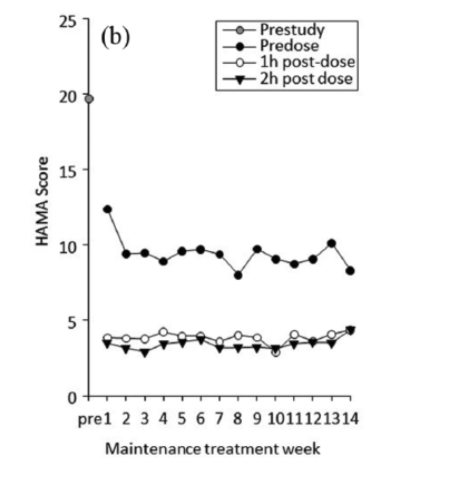Ketamine for Anxiety Clinical Trials
Dore et al (2019) reported a case series of ketamine outcomes for patients who were suffering from a variety of types of anxiety including social anxiety, generalized anxiety, and PTSD, with statistically significant benefits.[3] Their work was significant in that all of their 235 cases were ketamine-assisted psychotherapy, not ketamine alone. In a 2018 open label investigation by Glue et al, one to two subcutaneous doses of ketamine per week over a 3 month period produced a 50% reduction in generalized anxiety and social anxiety.[4] This study is important because it shows that recurrent dosing of ketamine can be effective for anxiety.
Figure: Glue et al 2017
